e-Science
We are right in the middle of a revolution where computers are redefining science as we know it. While the trend started in the natural and engineering sciences, it has evolved to become a pervasive component of virtually all scientific fields: modern aeroplane design depends more on computational fluid dynamics than wind tunnels, bioinformatics has turned biology into a quantitative subject, and we are seeing entirely new data-driven science, for instance in medicine.
Many of the challenges faced are similar: all these research directions rely on access to large computational resources, ability to work with and archive huge amounts of data, new algorithms both for computation and large-scale data analysis, and not least providing career paths for the highly skilled computational staff we recruit.
In its most basic form, the concept of e-Science is simply the notion of using digital information and the processing of this information to gain new scientific insights. This means that much of what we could call e-Science can be conducted using standard solutions both in terms of hardware and software.
SeRC’s scope is to address problems that go beyond standard solutions and are in need of access to state-of-the-art e-infrastructure as well as demanding new e-Science methodology and technology, thereby pushing the development of new e-Science tools. In this way SeRC paves the path for new highend e-Science that will eventually mature and benefit not only the groups involved in SeRC but also the whole academic base of e-Science users.




